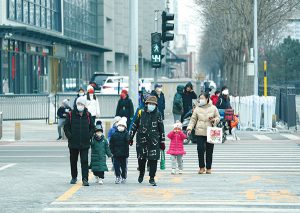Bloomberg
China’s provincial governments are bracing for a tough year, predicting income growth from taxes will slow and land sale revenue will fall, putting them under severe fiscal pressure as they try to spend more to support a faltering economy.
Some local authorities are predicting their general revenue this year will be significantly weaker than an expected national economic growth target of at least 5%, according to an analysis of budget reports released by 30 of China’s 31 provinces. In addition, the housing market slump will likely continue to take a toll on income from land sales in large swathes of the country, with the wealthiest provinces among the worst hit.
The deteriorating situation means provinces will struggle to pay for infrastructure spending to drive up economic growth, and be forced to borrow more to fund new projects, boosting debt levels that they have been ordered to curb.
Of the budget reports released, 28 provinces expect fiscal revenue growth to slow this year compared with 2021, with 15 forecasting general fiscal income will rise at half the pace of last year or even slower, according to Bloomberg calculations.
That includes regional economic powerhouses Beijing, Zhejiang, Jiangsu and Chongqing, whose per capita gross domestic product are among the highest in the country.
“All regions — no matter how developed or underdeveloped — face enormous pressures given the macro-economic headwinds this year,†said Zhang Yiqun, a senior researcher at the Society of Public Finance of China, a thinktank led by former finance minister Lou Jiwei.
S&P Global Ratings estimates that the gap between local government’ total income — including their own revenue and transfer payments from central government — and total spending will be about 16% this year. That is close to shortfall in 2020, when budgets were battered because of a surge in spending to fight the pandemic and lower taxes to support businesses.
That deficit will likely add to already massive debt burdens, both the official borrowings and the hidden ones. However for some provinces the deceleration is a return to more normal growth rates, after the strong rebound in 2021 in reaction to the weak performance in the first half of 2020 during the start of the pandemic.
Zhejiang and a number of other provinces expect aggressive tax cuts to curb revenue growth.
Local authorities will probably have to rely on transfer payments from Beijing to meet their basic spending needs.
 The Gulf Time Newspaper One of the finest business newspapers in the UAE brought to you by our professional writers and editors.
The Gulf Time Newspaper One of the finest business newspapers in the UAE brought to you by our professional writers and editors.
